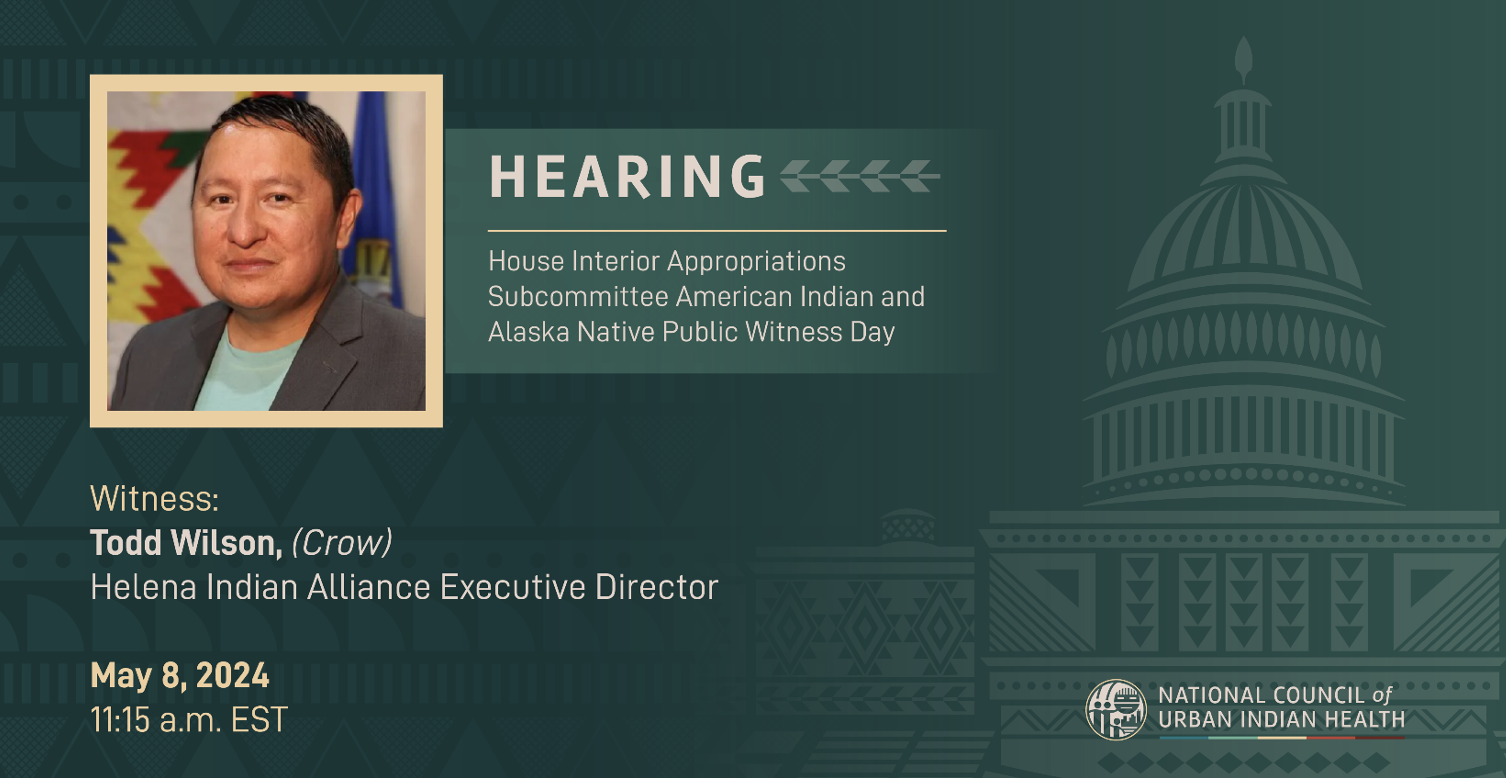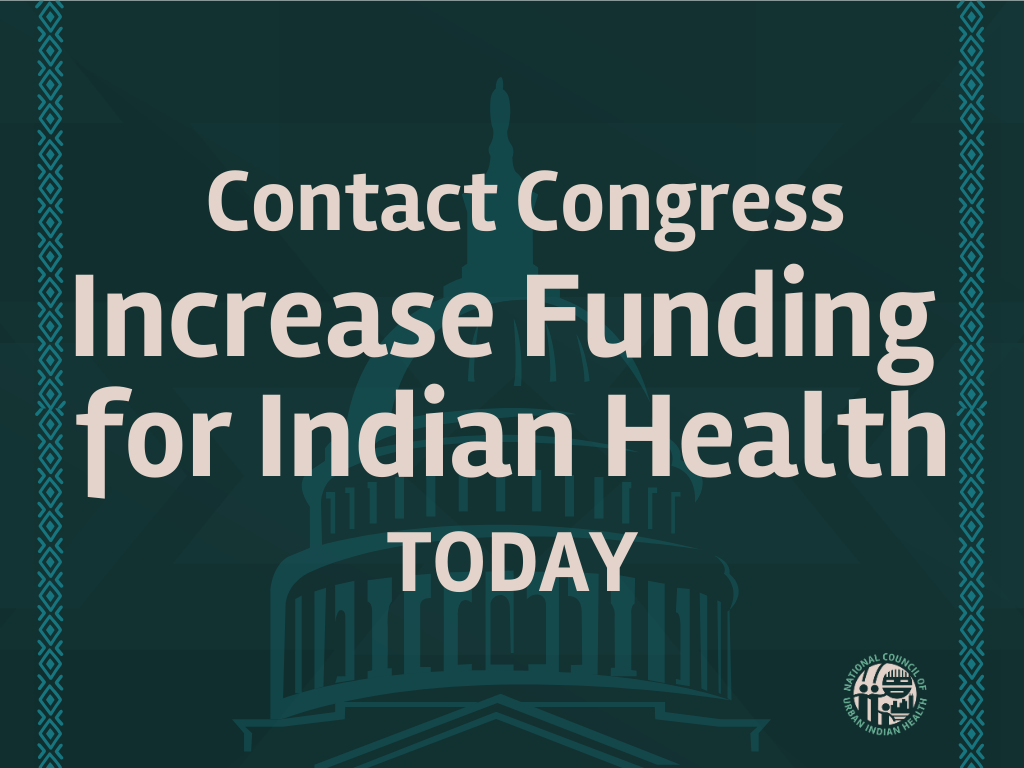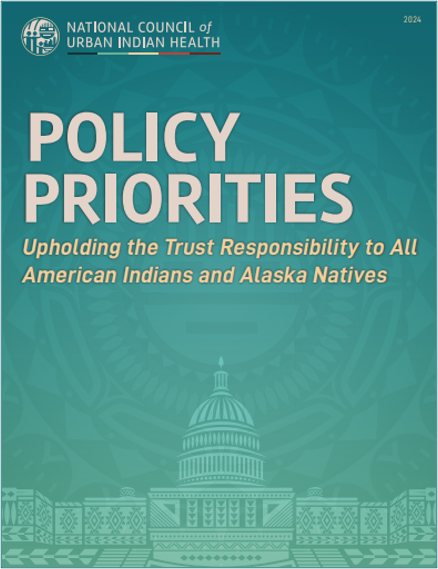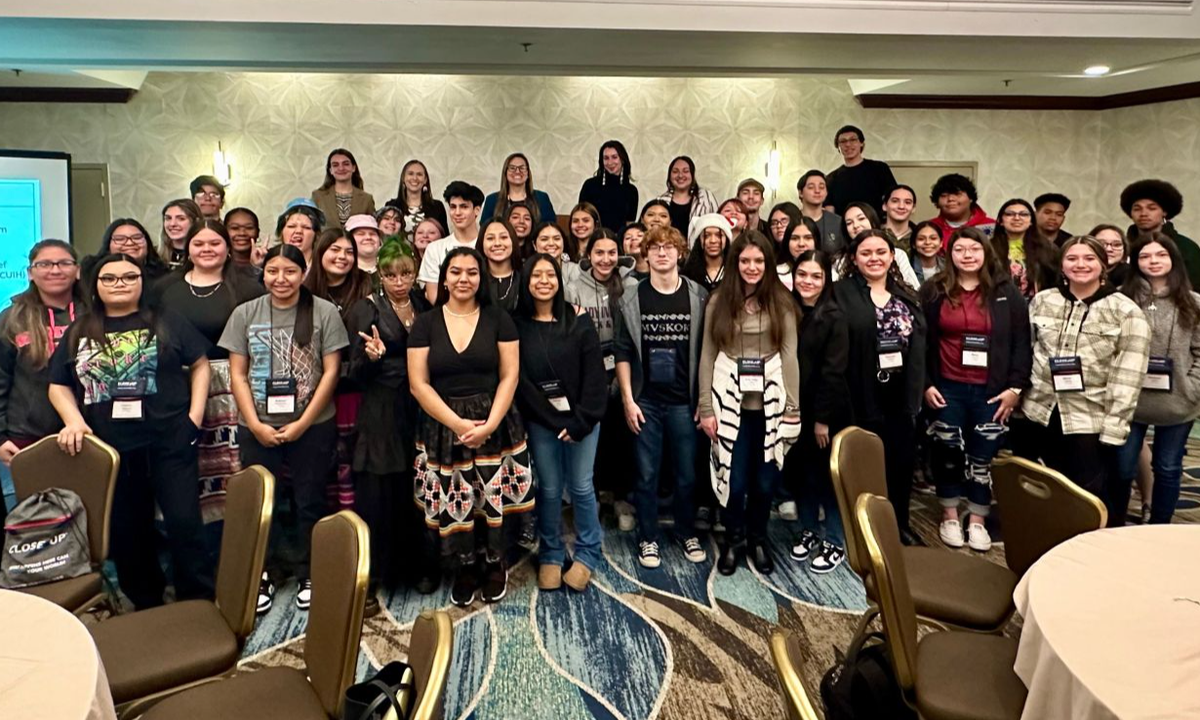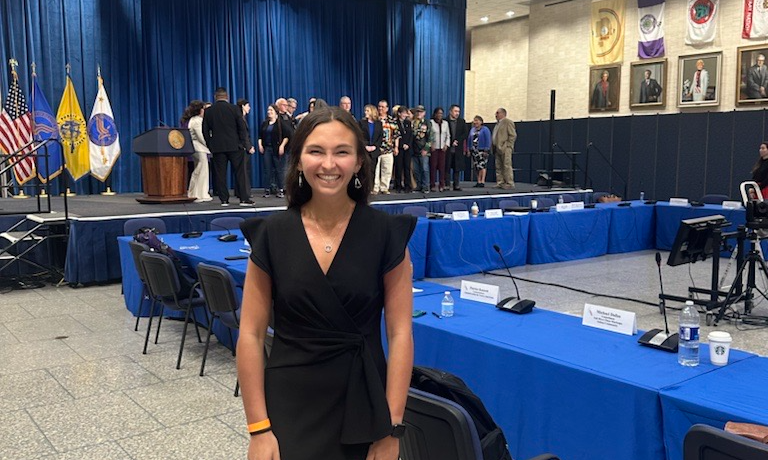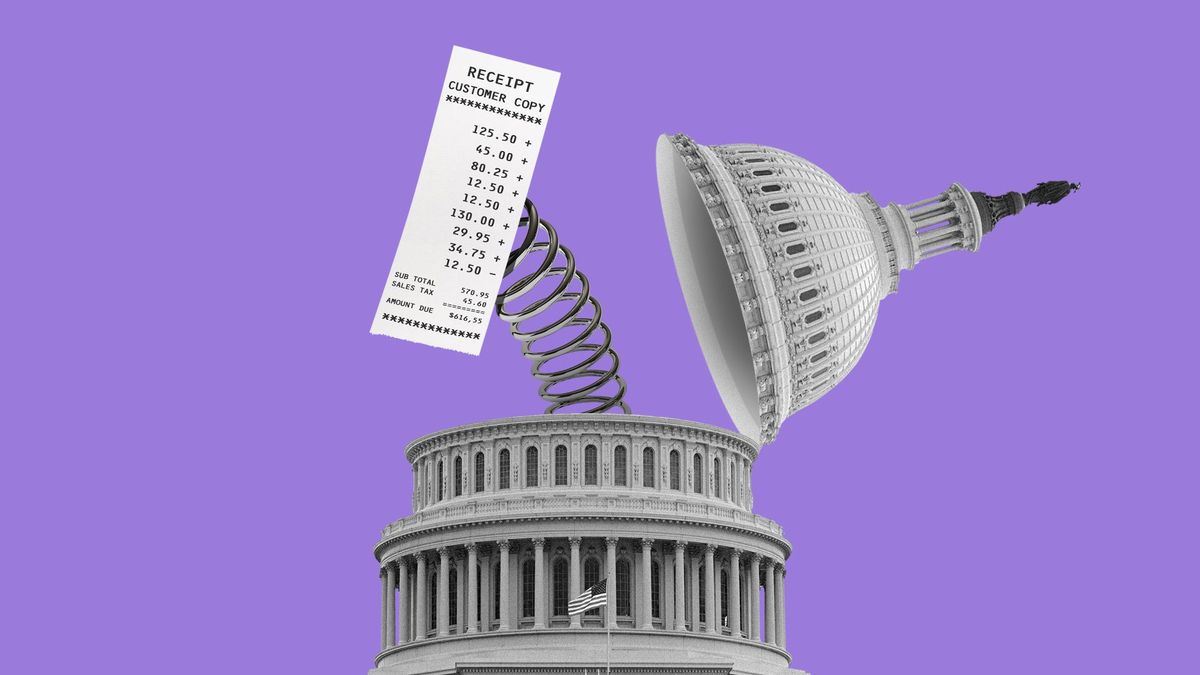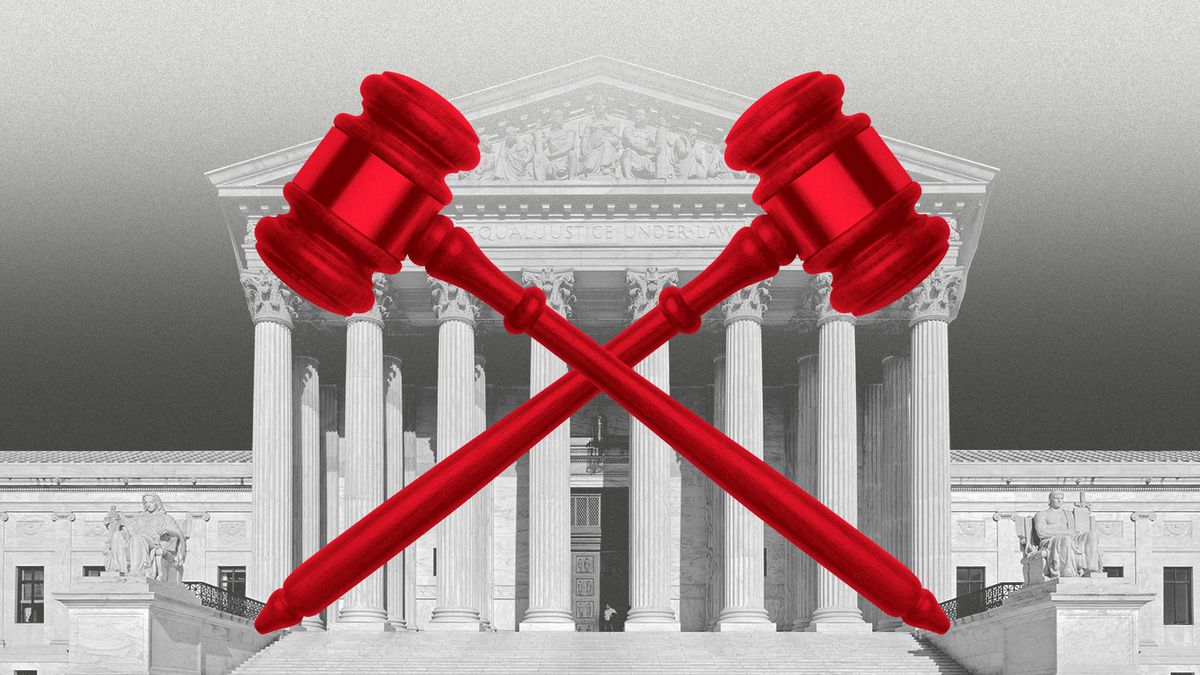May Policy Updates: Highlights from the Annual Conference, Congressional Testimony, Upcoming Events, and More!
In this Edition:
📸 Annual Conference & Hill Day Recap: View photos and key updates from Annual Conference and Hill Day activities.
🏢 Federal Agency Roundtables: Insights from CMS, SAMHSA, HRSA, CDC, and SSA, plus IHS listening sessions.
🏛 Federal Addresses: Updates from OMB, CMCS, DOJ, and DOI.
📆 Upcoming Events: Key dates like the VA Urban Confer, IHS Strategic Plan Urban Confer, and more.
💬 NCUIH in Action: Highlights from our representation at the NIHB Tribal Leaders Reception and the Taskforce on Maternal Mental Health launch.
📝 Federal Agency Comments: NCUIH’s advocacy on the CMS Traditional Healing Framework, VA-UIO Reimbursement Program, and more.
🔜 Consultations & Comment Opportunities: Participate in upcoming consultations on the IHS HIT Modernization Program and ICWA.
📅 Significant Dates: Track events like the NIHB National Tribal Health Conference and the NCAI Mid-Year Conference.
NCUIH Annual Conference and Hill Day
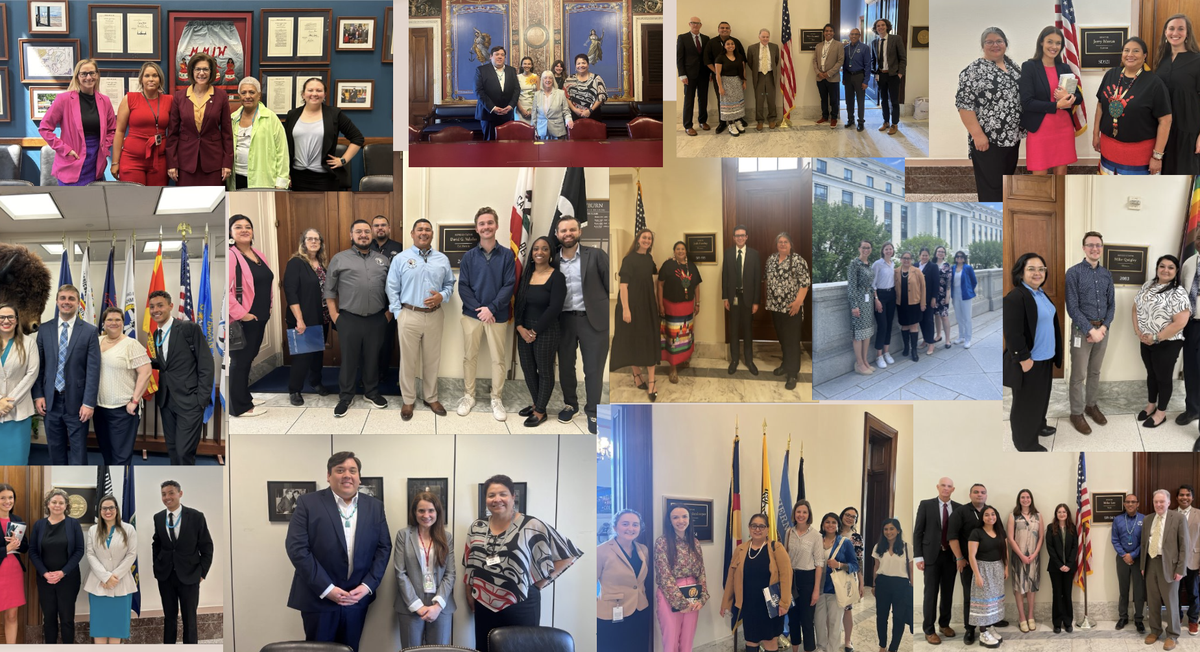
The NCUIH Annual Conference crescendoed with a Capitol Hill Advocacy Day, where the National Council of Urban Indian Health and leaders from Urban Indian Organizations visited 53 Congressional offices. This event was significant as it provided a platform for these leaders to directly engage with policymakers, amplifying the voice of Urban Indian Organizations and highlighting their priorities. This direct interaction helps ensure that their unique needs and challenges are understood and considered in legislative decision-making.
We are also proud to have hosted 5 Federal Agency Roundtables:
- Centers for Medicare & Medicaid Services (CMS)
- Substance Abuse and Mental Health Services Administration (SAMHSA)
- Health Resources and Services Administration (HRSA)
- Centers for Disease Control and Prevention (CDC)
- Social Security Administration (SSA)
3 Listening Sessions:
- Indian Health Service (IHS)
- Indian Health Service Division of Behavioral Health (IHS DBH)
- Indian Health Service HIV Program
and 1 Urban Confer with the VA on the Reimbursement Agreement Program:
- Department of Veterans Affairs (VA)
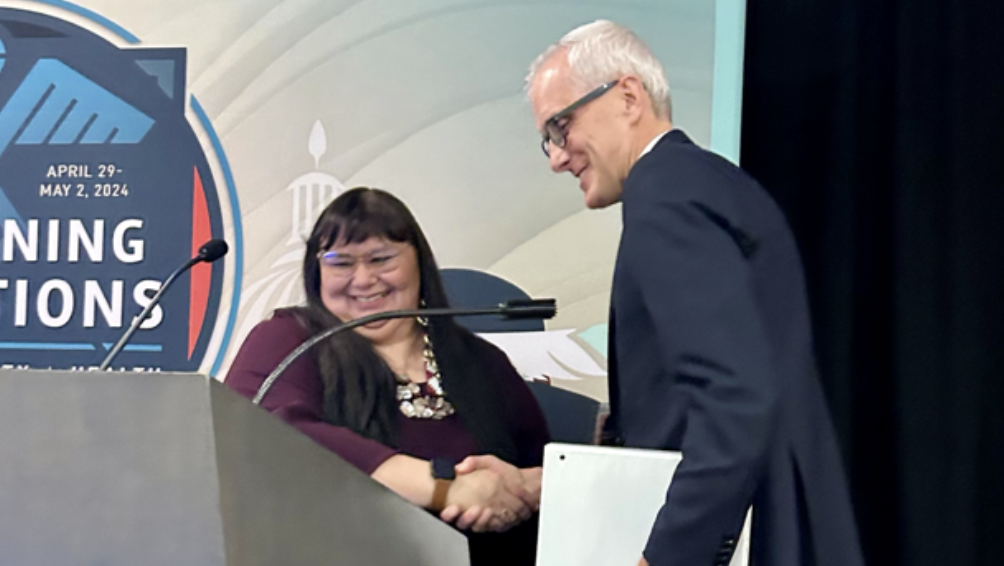
Sonya Tetnowski (Makah), MBA-F, Former NCUIH Board President, and The Honorable Denis Richard McDonough, Secretary of Veterans Affairs.
Featured Federal Agencies:
- Office of Management and Budget (OMB)
- Center for Medicaid & CHIP Services (CMCS)
- Department of Justice (DOJ)
- Department of the Interior (DOI)
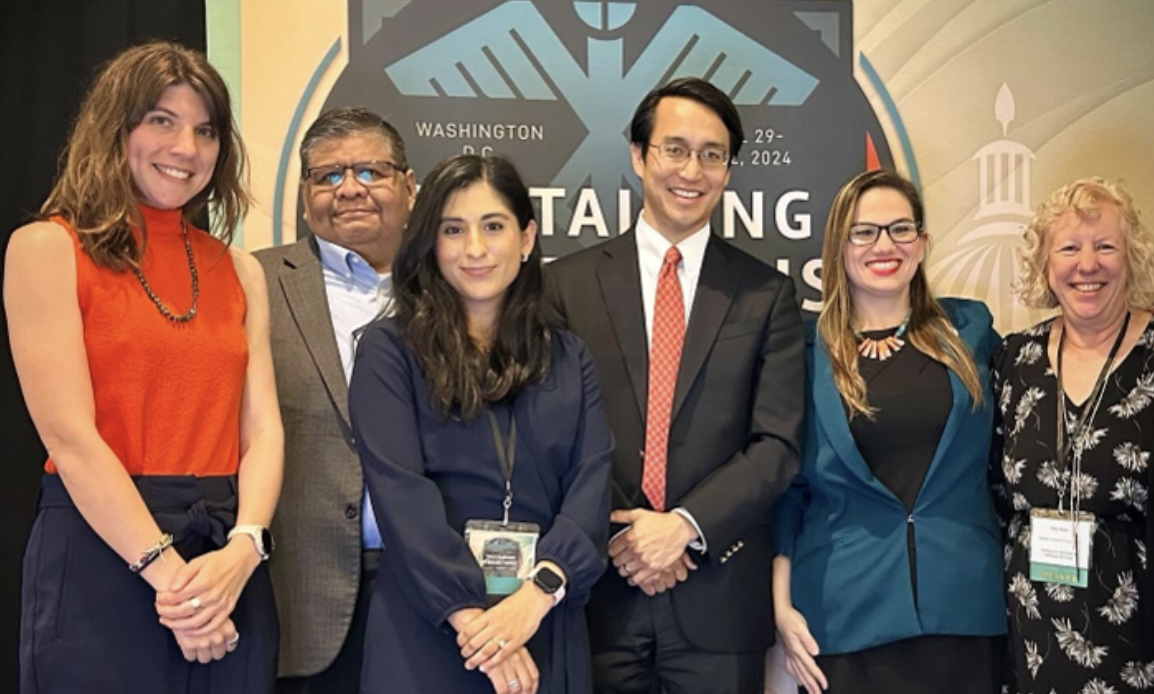
Rori Collins, JD, Esq. (Nenana Native Village) NCUIH Public Policy Counsel, Walter Murillo (Choctaw), NCUIH Board President, Alexandra Payan, JD, NCUIH Federal Relations Manager, Daniel Tsai, Deputy Administrator and Director of CMCS, Francys Crevier (Algonquin), NCUIH CEO, Kitty Marx, CMS Division of Tribal Affairs.
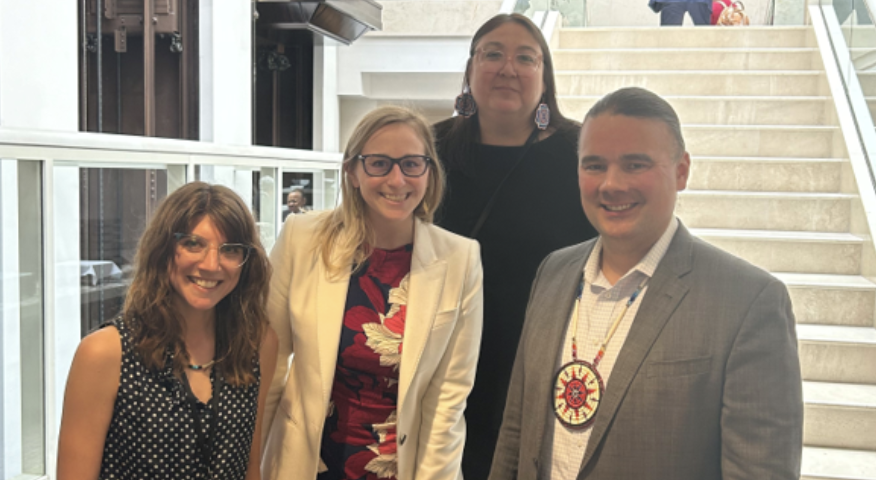
Rori Collins, JD, Esq. (Nenana Native Village) NCUIH Public Policy Counsel, Meredith Raimondi, NCUIH VP of Policy and Communications, Bryan Newland (Ojibwe), Assistant Secretary of the Interior or Indian Affairs.
NCUIH Requests Full Funding for the Indian Health System for FY 2025
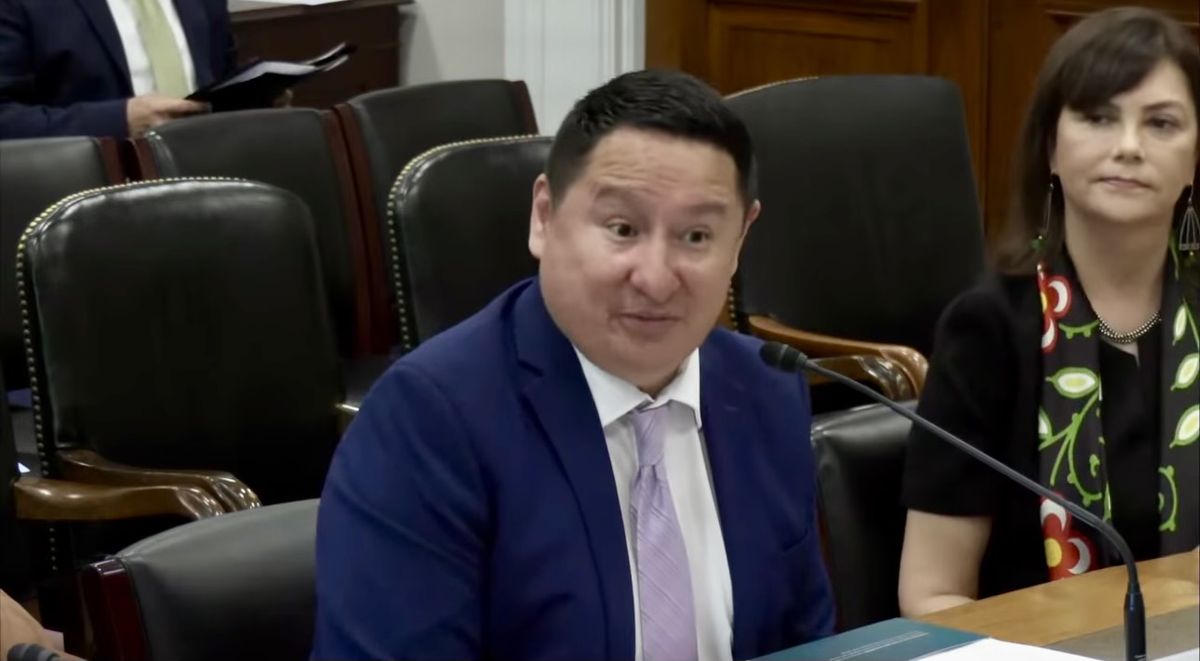
Todd Wilson (Crow), Executive Director of Helena Indian Alliance-Leo Pocha Clinic Testifies during American Indian and Alaska Native Public Witness Day.
NCUIH Testimony at House Interior Appropriations Subcommittee American Indian and Alaska Native Public Witness Hearing
On May 8, 2024, Todd Wilson (Crow), Executive Director of Helena Indian Alliance-Leo Pocha Clinic and NCUIH board member, was NCUIH’s witness for the House Appropriations Committee’s AI/AN Witness Day.
- Go deeper: Testimony advocated for full funding for IHS at $53.8 billion and Urban Indian Health line item at $965.3 million for Fiscal Year (FY) 2025 (as requested by the Tribal Budget Formulation Workgroup), maintaining advance appropriations for IHS until mandatory funding is authorized, and protecting IHS from sequestration.
Congressional Dear Colleague Letters
NCUIH helped draft the Dear Colleague Letters requesting the TBFWG’s FY 2025 requests for the Urban Indian Health line item ($965.3 million) and IHS ($53.85 billion).
- The House letter was bipartisan and closed on May 1, 2024, with 52 signatures.
- The Senate letter closed on May 13, 2024, with 20 signatures.
Advocacy Highlights: CMS Traditional Healing Framework & VA-UIO Reimbursement Agreement Program
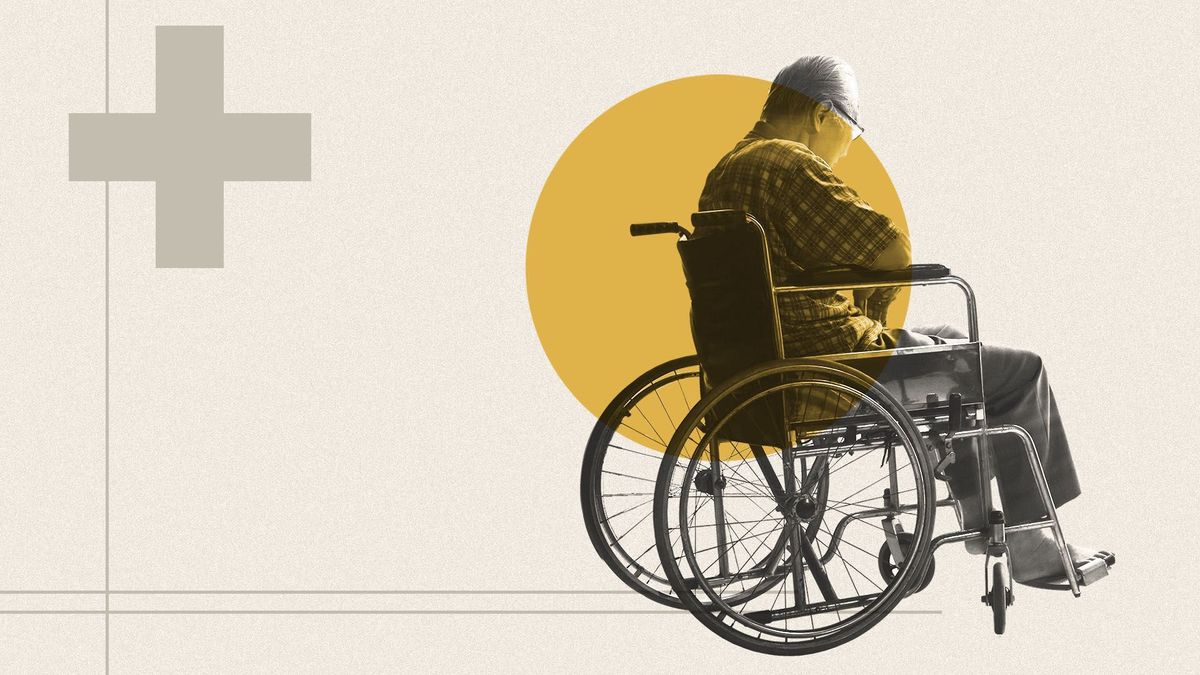
On April 29, NCUIH submitted comments to CMS on the Traditional Healing Framework Section 1115 Demonstrations.
- The bottom line: NCUIH requested that CMS include Traditional Healing services provided at UIOs in the Proposed Framework; allow Tribes, UIOs, and States the flexibility to develop a solution that serves all American Indian and Alaska Native beneficiaries; ensure the Proposed Framework reflects the requests of Tribes and UIOs; ensure the Proposed Framework does not create inequities in care; respect confidentiality for Traditional Healers and Traditional Healing practices; and engage with UIOs by hosting an urban confer and continue to engage with Tribes.
On May 15, NCUIH submitted comments to the VA on the VA-UIO Reimbursement Agreement Program. Urban confer was held on May 1, 2024, at the NCUIH conference.
- The bottom line: NCUIH requested that the VA continue to engage with and provide updates to UIO on the revised agreement through its development; improve the UIO reimbursement rates under the revised agreement; ensure Changes to the Scope of Services Include Services Provided at UIOs; and provide technical assistance to UIOs to support UIO participation.
Upcoming Federal Comment Opportunities:
June 7 – IHS Health Information Technology (HIT) Modernization Program: Deployment and Cohort Planning
- IHS held a Tribal Consultation and Urban Confer on May 9 providing information and updates on the EHR implementation process.
- IHS is seeking comments on the topic of EHR deployment and cohort planning.
June 14 – DOJ, DOI, HHS – Strengthening ICWA
- DOJ, DOI, and HHS held a joint Tribal Consultation on May 14, 2024.
- The agencies are seeking feedback on ICWA and what steps the agencies can take to promise federal protections for Indian children and their parents and caregivers.
June 28 – IHS Urban Confer regarding IHS’ Strategic Plan for FY 2024-2028
- IHS will host a virtual Urban Confer on May 30.
- The draft IHS Strategic Plan for FYs 2024-2028 will establish the Agency’s direction for the next 5 years.
- IHS is seeking input to establish goals, objectives, strategies, and performance measures to improve Agency operations, strengthen Tribal partnerships, and deliver quality health care to American Indians and Alaska Natives in urban communities.
July 1 – USDA Dietary Guidelines for America
- USDA is seeking public comment as the 2025 Dietary Guidelines Advisory Committee conducts its scientific review process.
July 10 – VHA-IHS MOU Operational Plan for FY24 and Joint Tribal Consultation and Urban Confer
- The VA and IHS sent a Dear Tribal and Urban Leader Letter seeking feedback on the VHA-IHS MOU Operational Plan for FY 2024.
- VA and IHS are tentatively planning to host an Urban Confer the week of June 10, 2024.
NCUIH in Action: Partner Advocacy, Democracy is Indigenous, and Medicaid Unwinding
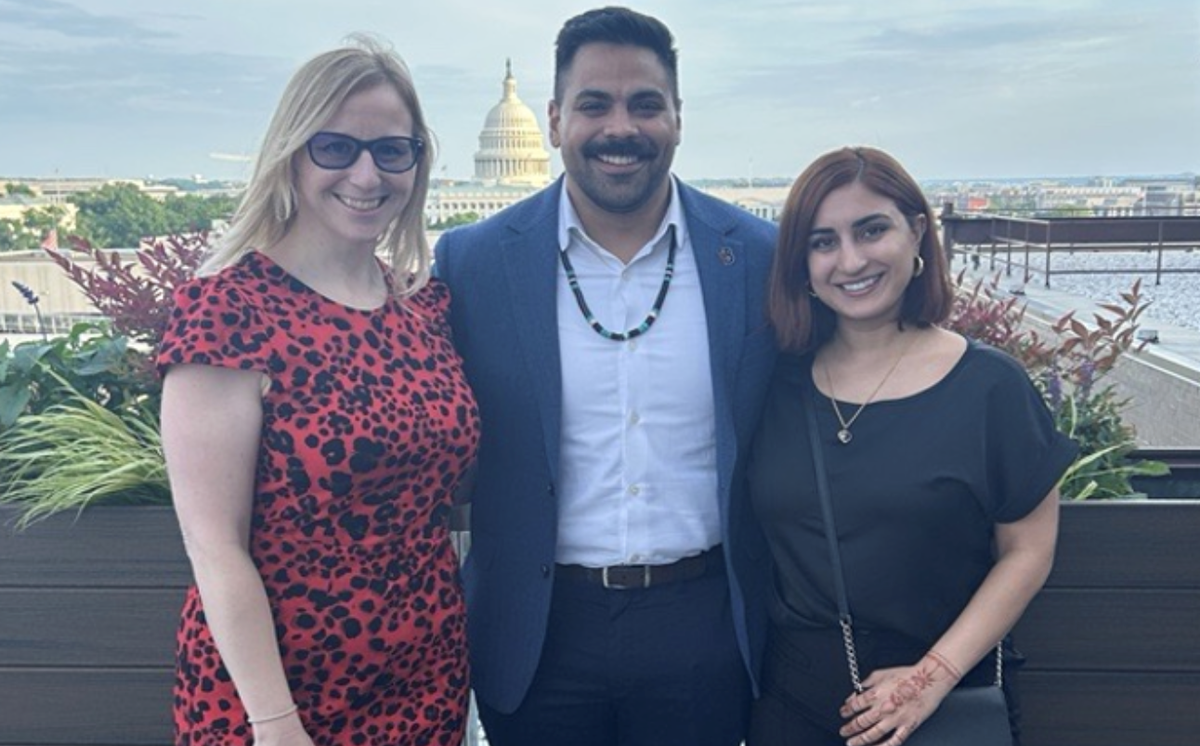
Meredith Raimondi, NCUIH VP of Policy and Communications, Anthony (A.C.) Locklear, JD, Federal Relations Director at National Indian Health Board, and Mary Jomia, NCUIH Public Policy Manager.
Meredith Raimondi, NCUIH VP of Policy and Communications, Anthony (A.C.) Locklear, JD, Federal Relations Director at National Indian Health Board, and Mary Jomia, NCUIH Public Policy Manager.On May 7, NCUIH represented UIOs at the National Indian Health Board (NIHB) Tribal Leaders Reception with HHS Secretary Tribal Advisory Committee (STAC) members.

NCUIH Interim Director of Congressional Relations Jeremy Grabiner, Urban Indian Center of Salt Lake Specialist Ralyn Montoya, National Urban Indian Family Coalition Executive Director Janeen Comenote, Kansas City Indian Center’s Executive Director Gaylene Crouser and Coordinator Jason Swartley, at the Democracy is Indigenous Mid-Year Gathering.
On May 14 and 15, NCUIH attended the National Urban Indian Family Coalition’s Democracy is Indigenous Mid-Year Meeting. NCUIH and partner Urban Indian Organizations shared the work they are doing to address voting access as social determinant of health. NCUIH also shared resources for voting which can be found at NCUIH.org/Vote.
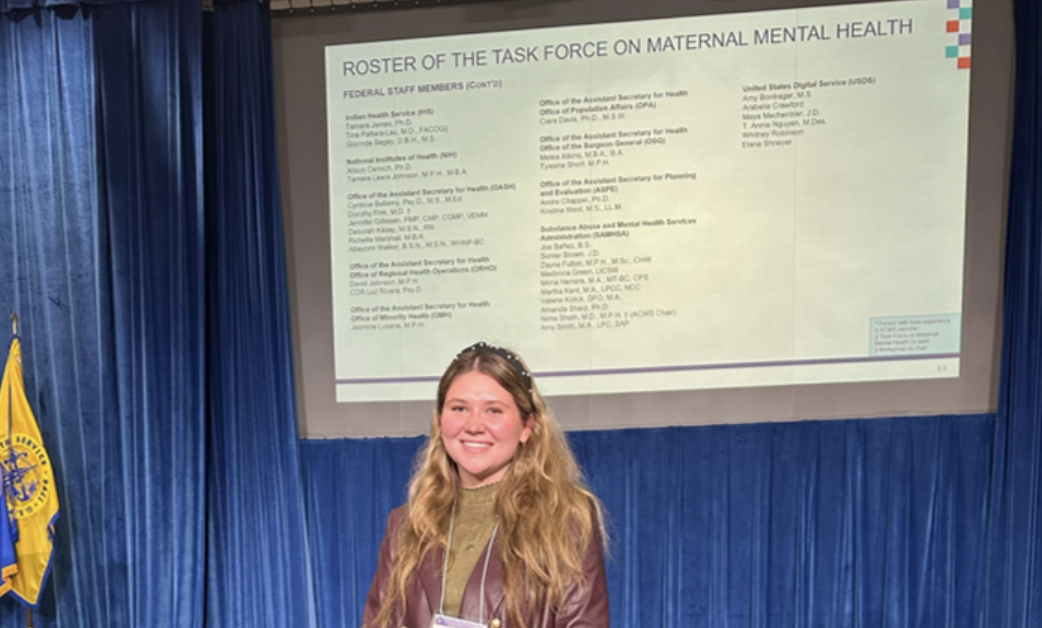
Carolyn Kowalyk, NCUIH Public Health Associate, at SAMHSA’s Taskforce on Maternal Mental Health Launch of the National Strategy and Report to Congress event.
On May 14, NCUIH represented UIOs at the SAMHSA Taskforce on Maternal Mental Health Launch of the National Strategy and Report to Congress. Attendees heard from task force co-chairs and members, women with lived experience, HHS leaders, Congressional leaders, and others dedicated to addressing the maternal health crisis in the U.S.
- Did you know?: The Taskforce on Maternal Mental Health is a subcommittee of the SAMHSA Advisory Committee on Women’s Services.
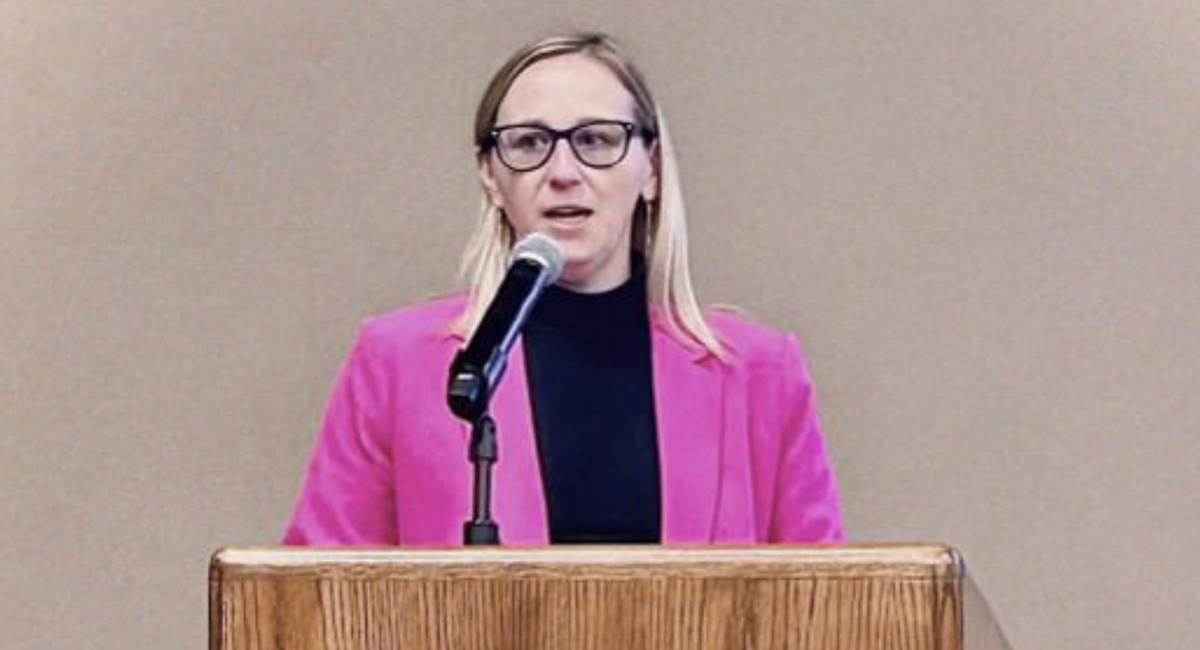
Meredith Raimondi, NCUIH VP of Policy and Communications, presenting at a Medicaid Unwinding panel discussion at the NIHB 2024 Tribal Health Conference.
From May 19-23, NCUIH is attending the NIHB National Tribal Health Conference in Rapid City, SD. On May 21, NCUIH Vice President of Policy and Communications, Meredith Raimondi joined the American Cancer Society Cancer Action Network (ACSCAN), NIHB, and Georgetown Center for Children and Families in a panel discussion about the impact of the Medicaid unwinding and terminations on Native American communities. With 2.7 million Native people relying on Medicaid, the federal government must fulfill its trust obligation and safeguard their coverage.
Upcoming Events and Important Dates

Recent Dear Tribal Leader Letters (DTLLs) and Dear Urban Leader Letters (DULLs)
- May 2: The IHS Director writes to Urban Indian Organizations Leaders to initiate Urban Confer on the Draft IHS Strategic Plan for Fiscal Years 2024-2028.
– The virtual Urban Confer on the draft IHS Strategic Plan is on Thursday, May 30, 2024, from 3:00-4:00 p.m. EST.
– Email comments and recommendations to urbanconfer@ihs.gov. - May 8: The IHS Director writes to Tribal Leaders and Urban Indian Organization Leaders to share IHS Harm Reduction strategy updates.
– Letter provides additional information on expanded harm reduction efforts to support our ongoing response to the opioid crisis impacting Tribal communities, and provides updates on the Naloxone Safety Net Program and the Drug Checking Equipment program.
Upcoming Events:
- May 19-23: NIHB National Tribal Health Conference in Rapid City, SD
- May 24: OUIHP-Urban Program Executive Directors/Chief Executive Officers Monthly Conference Call
- May 29: White House Council on Native American Affairs (WHCNAA) Homeless Veterans Initiative Workgroup meeting.
- May 30: IHS Urban Confer on the Development of the Strategic Plan for FYs 2024-2028. Join the meeting here.
- June 1-6: National Congress of American Indians (NCAI) Mid Year Conference in Cherokee, NC. Register here.
- June 11-12: Tribal Leaders Diabetes Committee in Scottsdale, AZ
- June 11: MMPC Monthly Meeting
ICYMI:

Sonya Tetnowski (Makah), CEO of Indian Health Center of Santa Clara Valley presenting before the VA Advisory Committee on Tribal and Indian Affairs.
On May 8-9, NCUIH represented UIOs at the HHS STAC meeting. Sonya Tetnowski (Makah), CEO of the Indian Health Center of Santa Clara Valley, presented about the VA Advisory Committee on Tribal and Indian Affairs
- What’s next: The next VA TAC meeting will likely be in Washington D.C. around August-September 2024.

